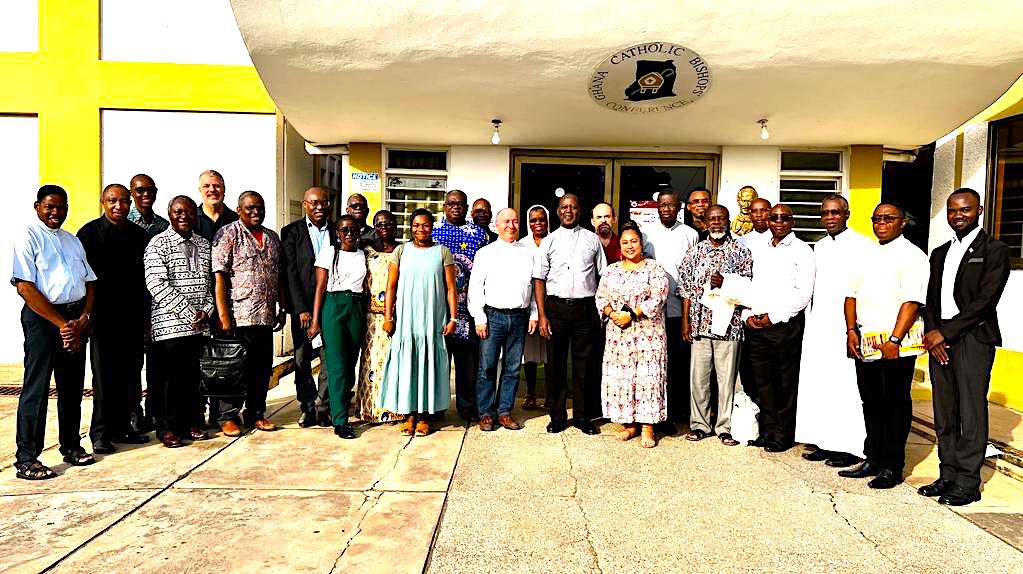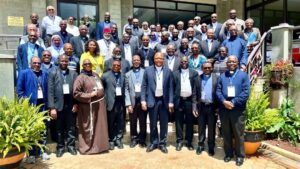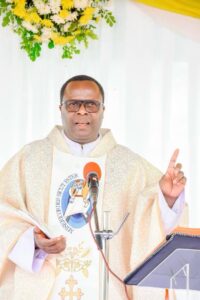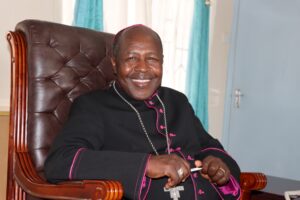SECAM: African Church to Emphasize on Prayerful Discernment and Listening to Local People During Continental Stage of Synod

Synod Continental Assembly, Accra Ghana
Sr. Jecinter Antoinette Okoth, FSSA
At an ongoing meeting in Ghana’s capital Accra for members of the African continent to develop strategies on how the continental stage of synod should take place, the team is stressing the need for deeper discernment through prayer and listening to the local people.
In a statement shared at the commencement of the three-day meeting from 6-9 December, conveners of the assembly, The Symposium of Episcopal Conferences of Africa and Madagascar (SECAM), in collaboration with the African Synodality Initiative (ASI), a partnership between the Jesuit Conference of Africa and Madagascar (JCAM), and the Association of Member Episcopal Conferences in Eastern Africa (AMECEA), highlight that this is the first meeting after Vatican released the Document for Continental Synod (DCS) for the local churches to pray, listen and discern on the document.”
Among other duties, the document highlights that “Each Continental Assembly is called to put in place a discernment process on the DCS that is appropriate to its local context, and draft a Final Document to account for it.”
Additionally, “the Final Documents of the seven Continental Assemblies will be used as the basis for drafting the Instrumentum Laboris, which will be completed by June 2023.”
According to the Secretary General of SECAM who signed the Tuesday, December 6, press release, Fr. Rafael Simbine Junior, the Continental Synodal Team which comprises of 25 experts gathered from across the Continent has been tasked “to work out modalities for continuation of the discernment process in view of the Continental Assembly scheduled for March 2023,” in Ethiopia.
He noted that at the end of this working session, the team of 25 experts will consolidate the proceedings of Synodality into a preliminary African Synodal Document after which they are expected to have the same process of “prayerful discernment, sharing and listening to the local people.”
“The fruits gathered at the local level will then be brought to the second working session scheduled for January, 2023 in Nairobi, Kenya,” reads an excerpt of the Tuesday statement.
Fr. Simbine underscored that during the continental phase, the local Church is expected to be guide by three questions drawn from the working documents including a reflecting on “Which intuitions resonate most strongly with the lived experiences and realities of the Church in Africa?
The local church on the African continent is also encouraged to reflect on “the substantial tensions, divergences and issues that have emerged as particularly important from Africa’s perspective and need to be addressed and considered in the next steps of the process” as well as “the priority areas, recurring themes and calls to action that can be shared by Africa with the universal Church and discussed during the first session of the Synodal Assembly that shall take place in October 2023.”
The 25 experts identified in consideration of the three languages used in Africa mainly English, French and Portuguese comprise of theologians, Religious and clerics together with the laity representing men, women and youths from various countries of Africa including Ghana, Mozambique, Kenya, Congo Brazzaville, Nigeria, Zimbabwe, Democratic Republic of Congo, Algeria, Uganda, South Africa, Côte d’Ivoire and Burkina Faso.


